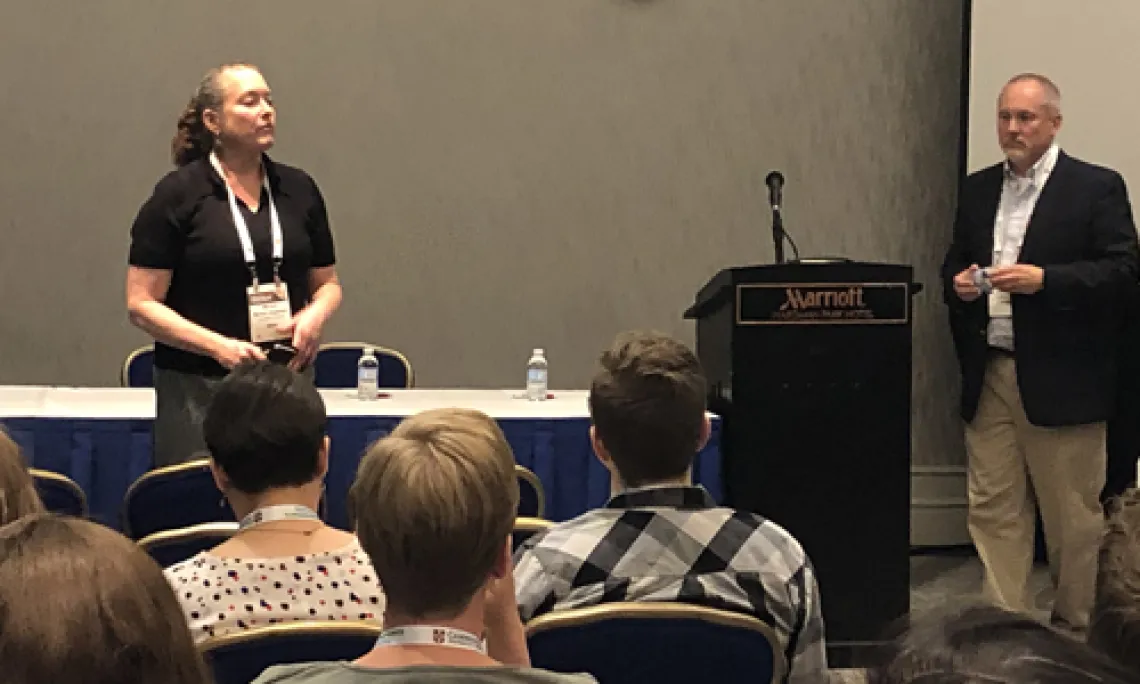NNI Short Course at the American Political Science Association Annual Meeting

In the wake of the #noDAPL movement and of the 2018 U.S. election, in which Native politics played a prominent role, Indigenous Peoples, Native nations, and tribal governments should be more visible than ever in political science. Yet many political science scholars feel unprepared to take on research that addresses or includes Indigenous political issues and Indigenous policy—and scholars that do take on these issues can feel sidelined by the discipline. On August 28, 2019, the Native Nations Institute (NNI) partnered with the Indigenous Studies Network (ISN) of the American Political Science Association (APSA) to provide an antidote. Together they presented a pre-conference short course SC06 on Indigenous politics offered as part of the APSA annual meeting held in Washington DC.
Co-designed by Miriam Jorgensen (NNI Research Director), Danielle Hiraldo (Lumbee Tribe of North Carolina, NNI Senior Researcher and Outreach Specialist), Richard Witmer (APSA ISN chair and professor of Government and Politics at Creighton University), and Raymond Foxworth (Navajo, vice president for grantmaking, development and communications at the First Nations Development Institute), the short course featured opening remarks, two panels, and a talking circle aimed at encouraging more scholars, departments, and journals to embrace tribal, Native, and Indigenous topics and research.
Opening remarks acknowledged Piscataway stewardship of the area now known as Washington, DC and provided contextual detail about the status of tribal governments within the American and international political systems. The first panel (Frank Ettawageshik, Moroni Benally, Heidi Todacheene, and Mary Nugent, with Rudy Soto as moderator) brought individuals with experience in tribal politics, tribal and federal government, and advocacy together to discuss their roles and the political science research that would help them in their work. The second panel (Laura Evans, Raymond Foxworth, and Raymond Orr, with Richard Witmer and Miriam Jorgensen as moderators) offered a wide-ranging discussion about the “place” of Indigenous political studies within the field of political science. The talking circle (hosted by Danielle Hiraldo with initial comments from Kirsten Matoy Carlson, Andrew Curley, Gabe Sanchez, and Jean Schroedel) focused on how students, young scholars, and established scholars can become more engaged in Indigenous political science. The broad opportunities the talking circle offered for sharing and learning were a highlight of the day.
Reflecting on the event, Jorgensen observed, “At least among attendees, this course placed Indigenous politics squarely within the discipline of political science; it energizes us for the work that still lies ahead.” ISN Chair Rick Witmer added that “bringing together Indigenous scholars, practitioners, and students for the first time ever at the annual meeting was a great success. We will be building on this work with more outreach and collaboration between the ISN and other organizations.”
The NNI-ISN short course was co-sponsored by the APSA Diversity and Inclusion Programs and and NNI with funding from the Morris K. Udall and Stewart L. Udall Foundation.

